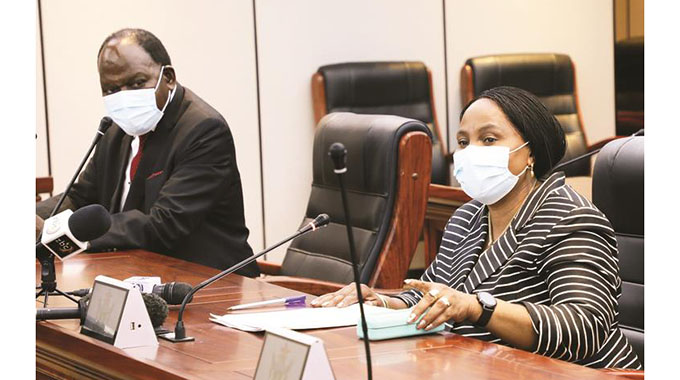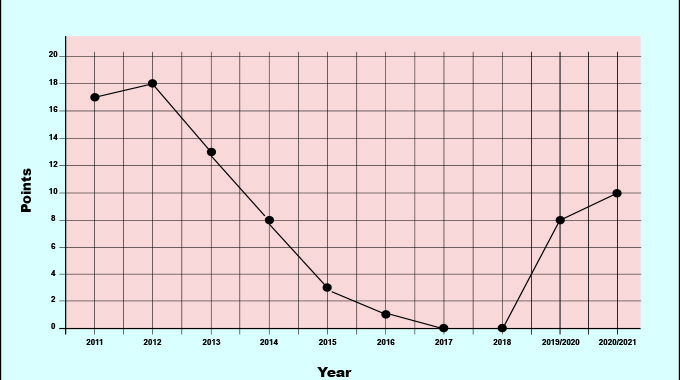Government plans to vaccinate 10 million

Mukudzei Chingwere
Herald Reporter
The Government plans to vaccinate 10 million people against the Covid-19 virus for free, as the health system battles to reduce the threat of the global pandemic.
Zimbabwe is expected to receive vaccines donated by The People’s Republic of China next week, while negotiations are ongoing with Russia for procurement of their Sputnik V. India has also promised to donate some vaccines and the country is also joining the African Union (AU) vaccination programme.
Information, Publicity and Broadcasting Services Minister Monica Mutsvangwa announced the plan last night after the first Cabinet meeting for this year.
“Regarding the Covid-19 vaccination programme, the Ministry of Health and Child Care plans to vaccinate about 60 percent of the country’s population in order to achieve herd immunity (10 million people),” said Minister Mutsvangwa.
“A development plan mapping the priority groups for roll-out of the vaccine has already been developed
“Already, Government has set aside US$100 million for the procurement of Covid-19 vaccines. Treasury will continue to ensure funding for procurement of other medical supplies including medicines and Personal Protective Equipment (PPE) in the fight against the Covid-19.
“The Covid-19 vaccines will be administered to citizens freely. The initial consignment will cater for frontline workers, the elderly and other vulnerable groups in Zimbabwe. The administration of the Covid-19 vaccinations in Zimbabwe will be on a voluntary basis.”
Minister Mutsvangwa said while cases are falling, Cabinet had noted that it was imperative to accelerate the acquisition of vaccines to halt a potential third wave.
Some of the Cabinet endorsements on the vaccination programme include agreement on the choices of vaccines which need to be science-based.
“Zimbabwe will take decisions independently in the national interest, without undue influence. The vaccination programme shall be undertaken in a structured manner, with groups such as the health frontline workers being accorded first priority.”
President Mnangagwa is on record that the Covid-19 vaccine jabs will be administered for free on everyone willing, this in the interest of public health.
The virus has killed more than 1 000 from related complications in Zimbabwe, across the globe more than two-million have succumbed.
Minister Mutsvangwa gave an update on the expected date of arrival of the vaccines donated by China.
“In terms of vaccine procurement, the Government of the People’s Republic of China extended a donation of 200 000 SINOPHARM Covid-19 vaccine doses.
“The donation and initial batch purchases are expected in Zimbabwe by February 15, 2021, and the first week of March, 2021, respectively. The 76 to 86 per cent efficacy of the SINOPHARM vaccine was endorsed by the World Health Organisation,” she said.
“Efforts to procure other Covid-19 vaccines such as the Sputnik V (Victory) from Russia, among others, are underway.
“India, like China, has also offered a donation and an option to purchase commercially and modalities for this offer are still being worked out,” said Minister Mutsvangwa.
She said Zimbabwe has submitted its expression of interest to participate under the AU Covid-19 Vaccination Programme, on which the private sector support companies will keep 50 percent for their employees.
Meanwhile, Cabinet also deliberated on the issue of irregular and dysfunctional settlements, which is now being handled by the Presidency.
In that regard Cabinet agreed, among other things on the deregistering of some co-operatives and ensuring that those found on the wrong side would account for their actions.
Ministries, Departments and Agencies will work in concert to stem the neglect and malpractices around illegal settlements, and arrests will be effected on criminal elements regardless of social standing.
Task teams on mapping of wetlands and other ecologically sensitive spaces at growth points, in towns, cities and peri-urban areas were created.
“The exercise shall be expanded to cover the whole country to draw up a National Master Plan of all ecologically sensitive spaces on which human settlements and related developments shall not take place,” said Minister Mutsvangwa.
“A National Wetlands Policy and Guidelines is being formulated in order to protect the environment for sustainable development. The identification of and quantification of all settlements in flood-prone areas, on illegal spaces and other irregular places and thereby enabling the Government to establish the magnitude of likely displacements from unavoidable demolitions.
“The identification of suitable alternative land on which to relocate families and households facing displacement under the corrective exercise, both for temporary settlement and for the eventual construction of permanent structures.
“The provision of off-site and on-site infrastructure and general comprehensive servicing of land in anticipation of allocation of stands and construction of structures according to set plans and standards.”
She said such planned settlements are integrated into the national power grid for electricity supply.
In the same vein, the Ministry of Information Communication Technologies, Postal and Courier Services will ensure access to the requisite ICT services.
Minister Mutsvangwa said the production of appropriate housing plans and architectural designs which promote the new thrust of settlement densification through high-rise structures, compact and integrated residential housing.
“The streamlining of the operations of co-operatives, including through de-registering all co-operatives which were captured by land barons but ensuring that innocent co-operatives and bona fide home-seekers are not unduly victimised.
“The re-drawing of boundaries and de-demarcations are done to clearly assign jurisdiction, rights, responsibilities and entitlements. The Zimbabwe Anti-Corruption Commission and the Special Anti-Corruption Unit in the Office of the President and Cabinet will be part of this process in order to ensure that corrupt individuals are arrested and the law takes its course.”










Comments